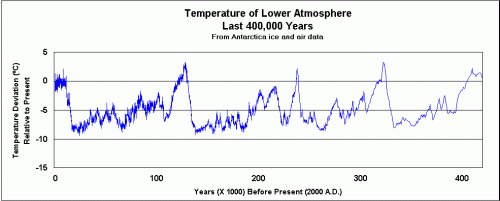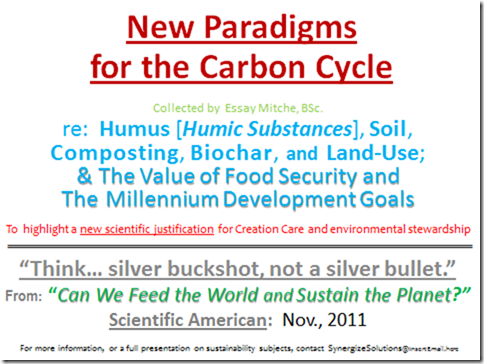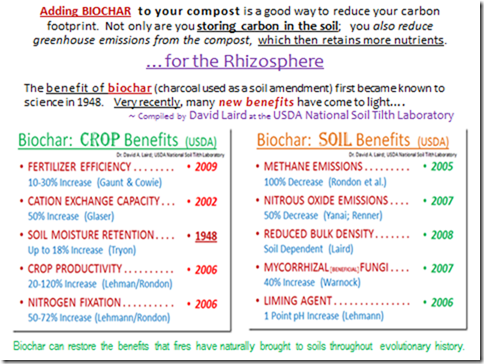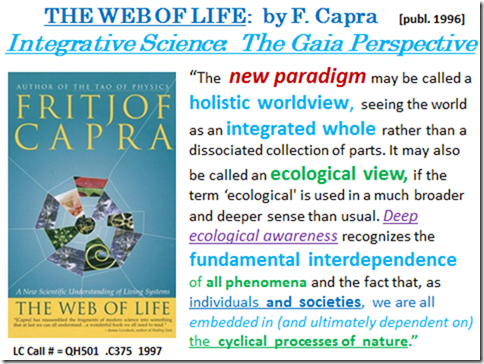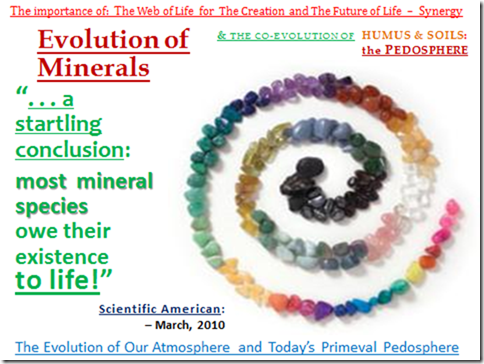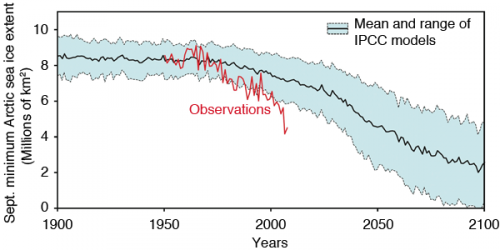-
Posts
530 -
Joined
-
Last visited
Content Type
Profiles
Forums
Events
Everything posted by Essay
-
I think you mean: "I have lost count of the mount of books/papers proposing different complementary mechanisms of evolution."
-
Pyrolysis or gasification is a way of turning waste materials into condensable and non-condensable vapors (smoke). These non-condensable vapors can be burned as "producer gas" for energy/heat/electricity. The condensable vapors can be cooled, collected, and refined to create bio-oil, a liquid fuel; as well as other commercially viable products such as vinegar or organic acids. But it is usually not economically viable. There are ways of combining these processes with other commercial or social or humanitarian projects to make it more viable, but it's no big moneymaker... so far. If you've got some new ideas about how to make the separation or fractionation or the refining easier, you could make the world a much better place; so feel free to share. ~
-
...could you provide citations showing that this is not the case? The evidence against significant election fraud in the US is ample. If the argument is that the US is not exceptional--and so must experience rates of fraud similar to the rest of the world--then there should be citations about voter fraud in Australia, or other OECD countries, or anywhere outside of the US, istm, if the suggestion is that the rest of the world has high rates of voter fraud. ~
-
...Cool! You might enjoy this, where they show the process, as well as find some new ideas.... http://www.pbs.org/w...king-sword.html [...my bold/ital.] I work on making charcoal from different materials, and creating a vortex (or any broad or less direct circulation) seems to affect the quality of the burn. So.... I wonder if angling your nozzle to direct air around the perimeter, or toward some deflector, might improve some dimension of your process. === Search: Tuyere CFD, or Nozzle CFD, to find some info and new ideas. e.g. Computational fluid dynamics (CFD) is your new friend.... ~ p.s. Cool pics at: http://www.sciencedi...305440305000099 "Computational simulation of air flows through a Sri Lankan wind-driven furnace"
-
...do you suppose some people confuse ordinary "contrails" with this notion of "chemtrails?" Whatever comes from the sky, I would expect that industrialized (conventional?) agricultural is polluting more land and water. Semantics aside, I think the idea of "organic" --integrated, promoting biodiversity-- is a goal to be fostered, and industrial-scale monocultural and over-specialized biomes should not become our sole, or even primary, resource. There are ways to increase food production AND reverse environmental degradation. That ethic should become more valued. http://opinionator.b...=me&ref=general Mark Bittman October 19, 2012 A Simple Fix for Farming "IT'S becoming clear that we can grow all the food we need, and profitably, with far fewer chemicals. And I'm not talking about imposing some utopian vision of small organic farms on the world. Conventional agriculture can shed much of its chemical use — if it wants to." "So this is a matter of paying people for their knowledge and smart work instead of paying chemical companies for poisons." === ...NYTimes article based upon this recent source: http://www.plosone.o...al.pone.0047149 There is workable ground between "truly organic" and "conventional" it seems. ~
-
http://www.democracy..._ken#transcript Mike Burke spoke with a prominent supporter of the new voter IDs laws, Ken Blackwell, vice chair of the Republican National Committee's platform committee and the former Republican secretary of state in Ohio. In 2008, Blackwell oversaw the election process for Ohio while serving as state co-chair of the committee to re-elect George W. Bush. His role in the Ohio election, which saw George W. Bush narrowly beat John Kerry, remains controversial to this day, making him the target of over a dozen lawsuits. KEN BLACKWELL: "The past 40 years, we've concentrated on making sure that the franchise was not impeded by onerous regulations and unfair processes. In the last six years, we've looked at the other voting right, and that is the right to make sure that legal ballots are not negated by fraudulent ballots. And as a consequence, I think there's a good balance that we've been able to strike between those two voting rights." ===> SMARTech is featured prominently in Craig Unger's new book, Boss Rove: Inside Karl Rove's Secret Kingdom of Power. Unger talked about Blackwell and SMARTech last week on Democracy Now! CRAIG UNGER: "And somehow or other, in 2004, in the state of Ohio, which was the single most crucial state in the Electoral College, when it came to the actual voting, the secretary of state of Ohio, a guy named Ken Blackwell—and the secretary of state's job is to—part of it is to ensure fair, nonpartisan elections—happened to be co-chair of the Bush campaign. Now, there's no conflict there. And he gave a contract to host the fail oversight for the Republican—rather, for the votes in 2004, to none other than SMARTech." .... "The exit polls had shown Kerry winning Ohio, and therefore the election. And it looked like he had won the presidential election. I remember that day vividly because I was getting reports from the exit polls, and I went around telling people it looked like Kerry had won. But there was a 6.7 percent difference between the exit polls and the actual results. And as a result, the election ended up going to Bush." ~Rove:2004 &c. See also Greg Palast: http://www.gregpalas.../ballotbandits/
-
...JB~~All your reason are belong to us. === It's not "my" theory that you are calling pseudoscience. John, simply raising a different mechanism for warming doesn't erase all the falsifiable predictions of Greenhouse Theory, which have held up. Besides that, the Hadley cell isn't a mechanism (or forcer); it is a consequence of geothermodynamics, like ocean currents or jet streams. It is a response to established heat flow (insolation, evaporation, convection, etc.), which may be why expansion is being observed (more greenhouse heating); but that wouldn't make the poles warm more than the tropics... would it? Can you suggest a mechanism, whereby that would work, with falsifiable predictions? I think, if you check, you'll find Hadley circulation has already been ruled out (doesn't make sense) as a cause for the greenhouse effect or exceptional polar or night-time warming. === ....Avoid what question, what ad homs, what "hot spot;" what are you talking about? === You can look this stuff up, but in the same way that we can observe how the planet's surface is about 15C degrees warmer (than it should be due to insolation/albedo alone) because of our atmosphere, we can observe the difference between ice-age conditions (~20 kya and now), to see what changes in conditions led to an observed ~5C degree change in temperature. The difference between the temperature change calculated from solar input variance alone, and the actual temperature change, would (roughly) be the change due to feedbacks. The sensitivity is around 3 (2.7 iirc). This result arises because, as we moved from glacial to interglacial conditions, instead of a one-quarter degree of change per Watt/m-2 (calculated from solar change), almost a three-quarter degree per W/-2 seemed to occur. So the feedbacks lead to about a three times amplification or sensitivity. === Ha! To refute "stability," you point to tree-ring variability? You!? Using dendro-data as valid evidence!? Will wonders never cease? I guess there is a first time for everything, eh? But the point is that we "know" which transient forcings cause those short variations, and so now that we are injecting a long-term forcer, we should not expect variability to remain bound around the past "level" and normal or known averages. How do you define "long-term" forcing, or stability? === ...we can look at reconstructions to see; but.... Perhaps you could revise your perception of "stability" to better reflect physical reality and a geological "long-term" perspective, rather than the view from one short lifetime. I specified the relative stability of our climate, when I said "as stable as during the past few thousand years;" and you posted graphs showing some variability during the past few (0.2-12) thousand years. But those same few thousand years, which you pointed to as unstable (mentioning D-O events), are the recent past that I see, which has been relatively "stable" when compared to the past hundreds-of-thousands to millions of years. Despite the increasing resolution that adds increasing "variability" to the graph in more recent millennia (left side), the slope of 10kyr segments is what counts as varibility on a long-term scale; so focus on the slope of 5-10kyr segments. Note the level slope, for the past interglacial; as compared with the slope of climate during any other "recent" period. That "levelness" is the "as stable as," which I was talking about. The MWP & LIA do not even count as blips in climate variation, when you look at what the planet has done throughout history--before the past few (5-12) thousand years ago, or roughly--before agriculture developed. === The climate variance between the LIA & MWP should be considered minimal, when compared to the climate variation we are currently forcing into the system. === So back on topic. Do you really think that is all the Arctic does? From where do you think "polar amplification" arises? Robust and extensive Arctic Ice is what stabilizes our weather patterns; by keeping the ocean currents active, and by keeping the jet stream strong, as well as by providing the minimal amount of albedo keeping the present feedbacks operable... and by preventing those "blocking highs" from forming easily, too far into the northern latitudes. === You shouldn't believe (or repeat) denialist hype from the internet, John, imho; or maybe you just didn't get the word in your community.... There is nothing that is overall "now defunct" about the Hockey Stick. It (The Hockey Stick) continues to be recognized by the scientific community as valid and instructive. JohnB: Why do you also seem to never "...even consider all subsequent peer reviewed commentary –commentary that clearly demonstrated that correction of Mann et al's "short-centered" PCA had minimal impact on the overall reconstruction."? ...as is mentioned at: http://deepclimate.o...tyle/#more-2745 ...or at: ==> http://www.popsci.co...-climate-change ...my bolding ... it is in addition to a bunch of crazy people.=== ~All your basis are belong to us!
-
Yes, it's mainly in America, with its Free-Market Fundamentalist, that Romney's friends are seen as the Job Creationists.
-
But Rigney's "argument" is based on the rhetoric that our bad economy results from the past three to four years of "rescue policies," rather than being the result of overwhelming job loss (especially for women) and economic disruption coming from the 2008 collapse. If we're wondering what "some women may think," let's hope it is not based on rhetorical associations, but instead on history. ~
-
...I did some web surfing on this topic: There might be some botanical remedies.... http://www.sciencedi...568988306001089 "Effect of five chinese traditional medicines on the biological activity of a red-tide causing alga" "...with aloe (Aloe vera L. var. chinensis (Haw.) Berg.); followed by areca seed with aloe, and golden thread and areca seed with kelp (Laminaria japonica). In general, the zeolite based algal inhibitors were less effective. The inhibitory rates of the algal inhibitors LA, LI, KG, KA and KG were all above 90%, and remained high for 72 h." === http://www.aseanbiot...ct/21015467.pdf Growth Inhibition of Cyanobacteria by Ultrasonic Radiation: Environ. Sci. Technol. 2003, 37, 3031-3037 === http://onlinelibrary...06.01951.x/full "Growth inhibition of bloom-forming cyanobacterium Microcystis aeruginosa by rice straw extract" Letters in Applied Microbiology; Volume 43, Issue 3, pages 307–312, September 2006 "Allelopathy is defined as the direct or indirectly harmful or beneficial effects of one plant (including a micro-organism) on another through the production of chemical compounds that are released into the environment (Rice 1984). The allelopathic activity of plants, such as rice straw, has already been documented, and phenolic compounds invariably identified as the allelopathic or phytotoxic substances." Conclusions: The growth of M. aeruginosa was inhibited by rice straw extract concentrations ranging from 0·01 to 10 mg l−1. This activity was due to the synergistic effects of various phenolic compounds in the rice straw. === http://onlinelibrary...ial+maintenance INHIBITION OF UNICELLULAR ALGAE BY SYNTHETIC SURFACE-ACTIVE AGENTS Journal of Phycology; Volume 1, Issue 3, pages 102–110, September 1965 SUMMARY The effects of non-ionic, anionic and cationic detergents on 12 species of marine phytoplankton lucre observed. Although individual species varied widely in response, growth inhibition in non-ionic surfactants became more pronounced as the surface-active properties of the agents tested increased. The tolerances of species belonging to the same family were generally similar, and each family had a specific inhibition pattern. Anionic detergents inhibited growth in concentration ranges that depended on the species and the surfactant. All species were more sensitive to the cationic agent than to anionic or non-ionic agents === http://www.waterbugd...ths/barley.html Barley Straw Clears Ponds - Myth based on fact. A couple of studies have shown that barley straw does inhibit algae growth in water. If that's all the info you need in order to buy and add barley straw to your pond then your next step is: The study that started it all is Newman, JR & Raven, 1993 at The Centre for Aquatic Plant Management in the UK. Another study that basically confirms what Newman found is Brownlee, 2003. The most important point is that these studies show barley straw can inhibit the rate of algae growth. Most people seem to read inhibit as kill or stop. The studies only show growth slowing. As the scientists say; "it's algistatic (prevents new growth of algae) rather than algicidal (kills already existing algae)". It is likely that a combination of factors results in the anti-algal activity generated from decomposing straw. He then describes a complex process where the end result is hydrogen peroxide a known inhibitor of algae growth. === http://www.bbe.or.kr...ile/article.pdf Biotechnol. Bioprocess Eng. 2002, 7: 231-233 "Effect of Calcium Peroxide on the Growth and Proliferation of Microcystis aerusinosa, a Water-blooming Cyanobacterium" One possible explanation for this growth inhibition is the removal of the available phosphate by calcium peroxide. === Search: algal inhibition by peroxide ...or, by humic substances
-
http://opinionator.b...=me&ref=general Mark Bittman October 19, 2012 A Simple Fix for Farming "IT’S becoming clear that we can grow all the food we need, and profitably, with far fewer chemicals. And I’m not talking about imposing some utopian vision of small organic farms on the world. Conventional agriculture can shed much of its chemical use — if it wants to." "So this is a matter of paying people for their knowledge and smart work instead of paying chemical companies for poisons." === ...NYTimes article based upon this recent source: http://www.plosone.o...al.pone.0047149 ...and if they integrate soil-carbon management with this, a sustainable path forward looks promising. edit: I think back in the early 1800s, this was called Convertible Husbandry. Imagine how we could now do it, with science and technology. ~
-
Do you mean elegant or eloquent? Though if it is 85 pages, I hope it is also eloquent. Perhaps a short summary would help get some feedback, especially if it is based on only one possible solution. ~
-
Re: What about the descriptions of how nighttime temperatures would be affected more than daytime temperatures? What about the descriptions of how stratospheric temperatures would be affected? What about the descriptions of how phenologic changes would accelerate? What about the descriptions of how the cryosphere would respond? What about the descriptions of how higher latitudes would be affected more strongly than more equatorial latitudes? No John, among the many points you bring up... those "predictions" rule in something that operates 24/7/365, from pole to pole, such as CO2; as well as ruling out something that operates only during the daytime, and that would affect the poles less than the lower latitudes and only seasonally, such as a solar cause. That is the falsifiability part. You can't establish "Pseudoscience" with pseudocritiques that do not invalidate decades of science done across the globe. === Ooooooh, it's all soooo unknowable.... But we can see... it won't be the same. And that is the point... it won't be as stable as during the past few thousand years. ...and about the "sensitivity" of the system; whatever its linearity might turn out to be on paper, we can observe how it responded in the past and derive a sensitivity based on those observations. That tactic is limited in many ways, especially as we push conditions beyond historical parameters; but it is a robust, repeatedly observed, result regarding observed climate sensitivity. But beyond that main point... you'll find a way to doubt it, and thus ignore it as not set in stone. === It sounds as if you all are about halfway prepared. I'd safely guess those desalination plants will come in handy, and be seen as valuable, in the not too distant future. Around here I advocate for combining flood mitigation with water storage, but they still tackle these as unrelated problems. === You'll ignore them both!? That is the easiest response to complexity, I suppose. But where is your curiosity or concern? Don't you wonder if there are different competing mechanisms by which "Global Warming will cause the Earth to spin" either faster or slower? Or wonder if one mechanism might predominate? Or wonder if they need to learn more about such mechanisms? Do you think these folks at Max Planck are deluded, or that they are just hoaxing this spin effect and having a good laugh at our expense? Those would be a good reasons to ignore them. I hope that by ignoring something, you don't also deny its existence; it doesn't disappear just because you ignore it. ~
-
The book Wetlands, by William Mitsch & James Grosselink, has equations that cover parameters involved with evapotranspiration. Search: Wetlands evapotranspiration Also search: evapotranspiration torr ...and Biophysics evapotranspiration... "soil biophysics" transpiration evapotranspiration biophysical parameters ...etc. === Introduction to Environmental Soil Physics, by Daniel Hillel, has lots of equations covering this topic. ...and then there is stuff such as this: http://www.academia....ter_Requirement "Assessing a Suitable Method in Estimating Evapotranspiration for Crop Water Requirement" ...which uses the Penman Equation ~
-
...if going with the flow means "...applying science to our daily lives and the care our planet," as Athena mentions, then I'm all for it. Geology is a science for the future because it will show us how life and soil processes strongly influence the development of the planet. Learning how the planet develops and responds to life and soil processes will allow us to intentionally manage our little lifeboat as it sails forth into the future. Soils operate as a hydrologic buffer, a chemical buffer, an acidity buffer, an oxidation buffer, and as a thermal buffer--at least. Soil is the third largest pool of carbon on the planet's surface, and it acts to buffer CO2 levels in the atmosphere. There are geologic buffers that are larger and act on much longer time scales, but soils --mediated through plants-- cycle (exchanging and buffering) atmospheric carbon levels on a yearly basis. Soils hold twice as much carbon as the entire atmosphere. Soils can operate as a thermostat for the planet, if we will learn through geology how soils and other life processes generate our resource systems and modify the planet. Land management should become one of the most valued vocations, as we realize its significance to maintaining and improving civilization globally. Geology will provide the insight to manage our resources sustainably, and to restore or modify our situation as needed--to promote and maintain biodiversity and healthy ecosystems. Soils are the source of our sustenance; there is value in ensuring sustenance. ~
-
I'm intrigued by this notion that our education system is to blame for our modern mindset of "relativism." I think this is a complaint of some right-wing ideologues who blame liberal education for destroying America's moral fabric (if I understand that perspective correctly). I often feel there is partially a certain truth in that notion about liberal education, but rationally I feel confident that liberal education is appropriate (afterall, it's what I was taught). As I read your posts, it seems that notion of "relativism" is the common factor in the problems you describe. Cultural relativism, biological relativism (evolution), social relativism (objectivist/libertarian), and of course physical relativism (relativity), as well as the moral relativism that seems to be politically correct in a secular society, all contribute to the fundamental background of our society. Materialism, consumerism, and a vicious circle of capitalism --as manifested through Marketing-- has elevated relativistic individualism to a fundamental value of Western society, which is validated by our education system, and this may lead to ...ummm, basically the seven deadly sins... or "moral decay" or the decline of civilization, civic apathy, etc. There are certainly examples of this sort of pattern throughout history, right? Anyway.... God & Religions used to keep societies cohesive to whatever extent was needed at the time and place. Things move a bit too fast these days, and are relatively global in nature, so we need a new paradigm to focus our need for cohesiveness and the communitarian benefits of civilization. With that in mind, have you heard of: ==== ReInventing the Sacred, a book by Stuart Kauffman, argues [iMHO] for a natural morality since a strictly rationality-based morality is easily corrupted or too short sighted. http://www.noetic.or...venting-sacred/ This notion of something that is "sacred" or recognized as eminently significant, by everyone in common, is what relativism erodes--it seems to me. So maybe this new perspective of Kauffman's could help move us beyond relativistic fundamentalism, eh? ~
-
...maybe Facebook's FarmVille will evolve into a GeoFarmVille, to more accurately reflect reality. If you get a chance to catch this on PBS or elsewhere, it is worth it. A Thousand Invisible Cords: Connecting Genes to Ecosystems http://www.environme...edu/events/2018 "Can a single plant or animal gene alter an entire landscape? Science now says yes... This one-hour documentary demonstrates that living things are connected in more ways that anyone thought possible. No longer can species be seen as isolated members of an ecosystem, but rather as genetically connected members of a rich interacting community." === They quote Darwin: ...my emphasis At one point, they describe a working group, the "Cottonwood Ecology Group," which focuses on Community and Ecosystem Genetics (genotypes & phenotypes) that included specialties such as: Plant Genomics Community Ecology & Genetics Quantitative Genetics/Genomics Population Genetics Conservation Genetics Ecosystem Genetics Ecological Genetics Plant Community Ecology Quantitative Ecology Ecosystem Ecology Chemical Ecology Soil Ecology Aquatic Ecology Limnology Mycology Entomology Organic Chemistry Wildlife Biology Theoretical & Computational Biology Conservation Biology Evolutionary Biology ===...but where are the microbiologists? Integrative science and cross-disciplinary programs are good ways to discover new levels of understanding, new paradigms, and socioeconomically helpful and restorative ways to multiply our advantages as we utilize planetary resources --making sustainabe management of those resources easier to achieve. They don't mention "humus" which is the flux that mediates and moderates a lot of these connections, especially nutrient cycling and immune responses. They need members from the IHSS also! http://www.humicsubs....org/index.html International Humic Substance Society The show also mentioned how Biodiversity is a foundational key to maintaining ecosystem services; promoting endurance, resilience, and productivity. Biodiversity should become more highly valued as interdisciplinary science further validates the Gaian perspective; life has a much broader effect (from geology to climate) than we easily appreciate, and it should be more highly valued--if only for our own long-term self interest. They call biodiversity "a priceless resource." In addition to biodiversity, the show also mentioned the importance of "mycorrhizal fungi" and "Silver Buckshot Solutions," all of which are main points in my sustainability talks; so I liked the show! It has a good message, a message which is somewhat ineffable; but they paint a good picture. ...silver buckshot! === ...mycorrhizal fungi! === ...integrative science & the value of biodiversity! === ...life's influence on geology! === "When we try to pick out anything by itself we find that it is bound fast by a thousand invisible cords that cannot be broken, to everything in the universe." -(John Muir, 1869 quote) ~
-
...fascinating information, and quite persuasive too! Do you have any PubMed citations, or other good sources on that info? Thanks! ~
-
Seriously, I don't pay much attention to media hype about such stuff, so I don't keep count. What about the descriptions of how nighttime temperatures would be affected more than daytime temperatures? What about the descriptions of how stratospheric temperatures would be affected? What about the descriptions of how phenologic changes would accelerate? What about the descriptions of how the cryosphere would respond? What about the descriptions of how higher latitudes would be affected more strongly than more equatorial latitudes? Observations of the averages for surface air, sea surface, ice, soil, and upper crust of the planet all show accelerating heat absorption, and all are responding as expected by greenhouse theory--by expanding, melting, or warming--since not all the additional heat goes into raising air temperatures. Greenhouse Theory seems to be increasingly validated as time goes by. But lets look at how one particular IPCC projection has done. Hey! You're right! It doesn't match! Do you think that means the whole theory is invalidated? Do you think the idea is wrong; that adding heat will not warm things up? Or do you think that idea is valid, but that we can't precisely project how that heat will be distributed over time and space? ~
-

Why are there so many global warming sceptics in USA?
Essay replied to Mr Rayon's topic in Psychiatry and Psychology
Grief is an understandable response when confronting the continual reminders to many of the long-term and long-range consequences arising via the extension and maintenance of "Western" empire. Realizing ones responsibility or complicity (however unintentional) in an untenable situation, of global proportions, might lead one to chuck their old worldview and adopt a new worldview. But losing ones old worldview (such as varieties of "American Exceptionalism") would understandably entail some grief. Denial is the first stage of that grief. === ...and denial works, until another reminder comes along. Then anger develops... and then bargaining (maybe curly lightbulbs will make everything okay, or maybe I can spread enough pertinent knowledge to help fix things in time), and then depression and "working through" or adjusting to the new reality. Finally "acceptance," or a recognition of sufficient adjustment to the new reality, completes the process. I fight the depression by promoting the "pertinent knowledge" needed for adjustment, as well as simply working on developing new adjustments ...such as ReInventing Fire, Pyrolysis, Biochar, Etc. http://www.biochar-international.org/ & http://www.rmi.org/ReinventingFire & http://www.sciencefo...120#entry707120 ~ -
It's a neat way to highlight "normal" in a new light! Though you should check out "Hitchhiker's Guide to the Galaxy" to avoid replicating some of those ideas. ~42
-
...or words to that effect, eh?I recently bought a copy of "Introduction to Organic Geochemistry" by Killops & Killops (after keeping the library copy for several years) so I could continue to better understand the significant influence of interactions within the biogeochemosphere--interactions which have developed and also operate over different temporal and spatial scales. So I agree that if we could better understand these interactions, including their evolution or development as well as their operation and significance within the whole planetary system, then we would more easily see paths forward to sustainable management of the planetary system and its resources. Another way of saying that is to point out how a more complete understanding of ecology would lead to better economic theory and thus an improved economy; since better knowledge about resources should lead to better management of those resources. Science, over the past decade, has come to realize soil and soil processes such as humification have a significant impact upon biogeochemical systems. This new aspect of a more complete ecology needs to be more fully appreciated, before we can better understand our economic problems and better see workable and sustainable solutions. So yes, without the more complete understanding of our planetary systems that geology will provide, it seems that physics and chemistry will continue leading us too quickly and easily into unsustainable technologies and products. === A series of points --from a recent book about a significant geologic determinant, the root zone and its chemistry, called the rhizosphere-- will illustrate this new paradigm; and you can imagine how it has influenced geologic processes in the past. Many rock formations, including petroleum deposits, are simply petrified soils--if you think about it from the right perspective. The Rhizosphere: An Ecological Perspective (Cardon and Whitbeck 2007) Edited by Zoe G. Cardon and Julie L. Whitbeck Elsevier Science, $75.00-95.00 USD Hardbound, 232 Pages Published: MAR-2007 ISBN 10: 0-12-088775-4 ISBN 13: 978-0-12-088775-0 Imprint: ACADEMIC PRESS LC Call #: QK644 .R445 2007 "The release of carbon in the form of root exudates may account for up to 40 percent of the [photosynthetically fixed]... matter produced by plants." --p.58 ...40%!!! "The interplay between microorganisms and microfauna determines the rate of nutrient cycling and strongly enhances the availability of mineral nutrients to plants." --p.58 ...as well as minerals leached away or to lower layers.... "The unintended consequences of agriculture extend well beyond agricultural landscapes and include environmental degradation and social displacement." --p.127 .... "We recognize that ultimately the transition to ecologically sound, sustainable food production systems that meet human needs will be complex and will require fundamental changes in cultural values and human societies as well as the application of ecolgical knowledge to agricultural management." --p.148 Also, from: (2007, Whitbeck & Cardon; The Rhizosphere: An Ecological Perspective) ~p.31 Technically the "Rhizosphere" is the "root zone" of soils, though science is increasingly revealing that all soils are strongly affected by this newly recognized and significant "independent ecosystem component." "The soil, fauna, flora, root, shoot, herbivores, and predators in many ways act like a single, connected organism." "Future significant advances in understanding and management will come from a holistic approach to the "'rhizo-organism.'" --p.67 === ...and for further social and economic context/relevance: "Here we briefly survey key modifications of the soil environment that result from a broad suite of management practices and their unintentional consequences for the rhizosphere habitat." --p.128 "We begin with an inventory of how conventional, high-input management has altered the soil environment and biota in agroecosystems with particular emphasis on the consequences for the rhizosphere habitat." --p.128 "As agriculture has evolved, the degree of intervention has grown steadily, culminating with the current, resource-intensive "Green Revolution" production systems where management interventions are often the dominant force shaping agroecosystem structure and function." --p.128 "Our discussion will emphasize the situation in conventional, high-input annual systems since these production systems supply a substantial portion of food on a global basis, are continuing to expand in developing countries, and also have the greatest impact on the environment." p.129 "The effect of cultivation on microbial community structure in bulk soil appear to be long-lasting and can still be detected years after agricultural mangement has ended." --p.132 "Rhizosphere microorganisms and their associated primary producers contribute both directly and indirectly to a wide range of ecosystem functions." --p.133 "It is against this backdrop of a highly modified soil environment and the cascading effects on soil biota that we examine the rhizosphere in agriculture and consider how to redirect management to restore rhizosphere processes and agroecosystem function." --p.133 "We believe there is a tremendous untapped potential for subterranean ecological processes to contribute to these sustainable food systems." --p.148 "Whether the perspective is one of mechanics or of chemistry, the rhizosphere represents a highly significant interface between biology and geology, an interfacial environment with broad consequences for earth's biogeochemistry and soil formation." --p.196 === ...& I'd note: both going forward, AND historically! === The process of humification is one perspective on how the rhizosphere influences are better understood. This book explains this side of the weathering or petrification of soils. Most significantly, it is only within the past decade that science has come to realize how the organic part of soil, or humus [Humic Substances (HS)], is as important as sunlight, air, and water, in fully understanding how the environment works. "The discovery of HS formation in the primitive atmosphere has further far reaching consequences for the understanding of ecosystem functioning. The HS are to be granted the role of an independent ecosystem component, such as atmosphere, water, or light, since they come into being simultaneously with early life. This means that living organisms have to adapt to humus or HS-like materials with which they come in contact from the very time they evolve." ~p.36/37 (2002, Steinberg; Ecology of Humic Substances....) "In this superabundance of new knowledge and the subsequent change in paradigms, it is clear that the role of HS for freshwater organisms principally is seen as one-directional: as fuel and energy, which is transferred in the aquatic food web by heterotrophs and mixotrophic flagellates and ciliates. It is often overlooked, that HS can have direct adverse or even biocidal effects (Chap. 8.3)." --p.343 http://www.worldcat....s/oclc/50748368 http://www.springer....8-3-540-43922-6 "In this superabundance of new knowledge and the subsequent change in paradigms...." Ecology of Humic Substances in Freshwaters: Determinants from Geochemistry to Ecological Niches Steinberg, Christian; 2003, V, 440 p. 213 illus. ISBN 978-3-540-43922-6 LC Call #: QH541.5 .F7S725 2003 ===> ...and in case you're interested in the biochemistry, consider the following--in relation to the quotes from the previous book above.... === ==> The National Academies would also agree with your idea on the importance of understanding our past and how we evolved to find ourselves in this unique situation, I'd think. See: In Understanding Earth's Deep Past, the National Research Council reports that rocks and sediments that are millions of years old hold clues to how the Earth's future climate would respond in an environment with high levels of atmospheric greenhouse gases." From the National Acadamies Press (Nat.Acad.Sciences, Nat.Acad.Engineering, Inst.of Medicine, & Nat. Research Council) http://www.nap.edu/c...record_id=13111 http://www.nap.edu/o...id=13111&page=9 === See also; if you want to apply this new geo-perspective to social issues: http://www.worldwatch.org/node/6126 "Mitigating Climate Change Through Food and Land Use" Authors: Sara J. Scherr and Sajal Sthapit ISBN 13: 978-1-878071-91-0 Publication Date: June 2009 Paperback, 50 pages LC Call #: S589.7 .S337 2009 Summary Land makes up a quarter of Earth's surface, and its soil and plants hold three times as much carbon as the atmosphere. More than 30 percent of all greenhouse gas emissions arise from the land use sector. Thus, no strategy for mitigating global climate change can be complete or successful without reducing emissions from agriculture, forestry, and other land uses. Moreover, only land-based or "terrestrial" carbon sequestration offers the possibility today of large-scale removal of greenhouse gases from the atmosphere, through plant photosynthesis. Five major strategies for reducing and sequestering terrestrial greenhouse gas emissions are: But that Killops & Killops book is worth the 30 bucks! It is like having a time machine and also being teleported to an alien world--just beneath our feet--where the planet's more primeval atmosphere still persists. ~
-
seriously?=== You start a thread entitled Arctic Ice Caps... and in your first post you say ... and you ask such a question? Could we all drown, as you say? Your post is the one linking the ice cap with drowning, isn't it? But I assumed you are smart enough to know that basic fact about AGW, so didn't think it was worth trying to "call" you on it as a rookie mistake--especially since it was obvious you were using it as a rhetorical device ...maybe to sow a bit more confusing complexity and thus make doubt easier. But you "call" me out for responding to your thread title, as if I had responded to the flawed notion about drowning (which only you brought up ...several times). Seriously? You seem to be trying to personify what they say, when I assume.... ~
-
...or don't understand it, or can't fathom the implications.... http://nsidc.org/arcticseaicenews/ So on average, there is no change, right? [iI Corinthians 11:19 ...suffering fools....] === If it doesn't match the predictions, then the theory must be "wrong," eh? ...But still perhaps not meaningless or useless, science might consider. ~
-
What problem doesn't exist? But I agree, "I find the ideas of god and religion unnecessary, unwarranted, and unhelpful in this discussion," which is why I'm discussing the function those provide and provided in our history where we "evolved certain tendencies within the context of being a group/tribal species, already offer and provide the "regulatory" structure you deem so important to a well functioning society." I'd like to say more, but have a busy weekend ahead: http://www.sustainab...le-living-fair/ But, Iggy, keeping the focus on what function a god fulfills for a society, instead of proving God exists, the quotes pulled from that pre-WWI document seemed to back up, istm, Athena's point that the focus of education changed from teaching knowledge generally to broaden the horizons of our citizens into teaching knowledge specifically for filling slots created by a technological and secular society--a society that seems to value, perhaps too much, growth over culture. I agree that simple adding "God" into the equation isn't going to bring forth a solution that takes care of the problems that develop with "godless capitalism;" but even Adam Smith warned about those dangers. Something needs to address those problems, and by looking at the function provided by the fetters of religion and the regulations of government in our history, maybe we can learn something. Tariq Ramadan points out that fundamentalist (literalists, as he also mentions) are a source of problems in both the Eastern and Western Worlds. Literally, these are fairytales we're talking about; but as parables they have value. Wisdom, history, and experience can help us learn.


